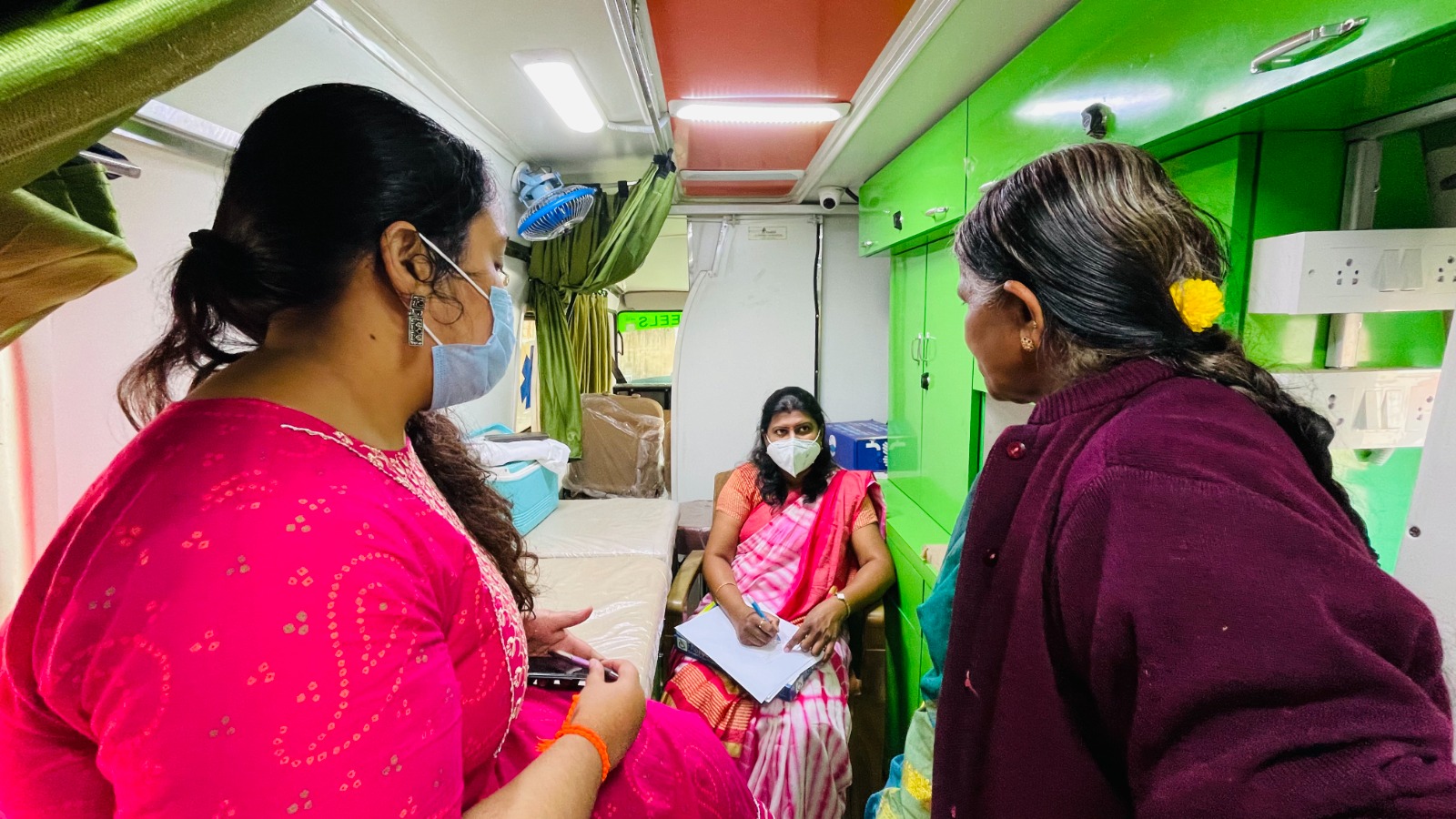Subscribe our Weekly Newsletter
RFP for the Endline study of Empowering Tribal Communities through Livelihoods Enhancement Project

Organization: Aga Khan Rural Support Programme India (AKRSPI)
Apply By: 30 May 2025
About the Organization
The Aga Khan Rural Support Programme India (AKRSPI) is a non-profit organization dedicated to promoting sustainable rural development. Established in 1983, AKRSPI works across multiple states in India, focusing on empowering rural communities through participatory approaches. The organization’s key areas of intervention include natural resource management, agriculture, women’s empowerment, livelihood enhancement, and water resource management. AKRSPI emphasizes capacity building, creating community-based institutions, and fostering self-reliance among vulnerable groups. Through innovative solutions, the organization addresses challenges related to poverty, climate resilience, and social inclusion. Partnering with government bodies, donors, and private sector entities, AKRSPI ensures impactful and scalable outcomes. With a commitment to equitable development, AKRSPI continues to transform lives, enabling rural communities to thrive.
About the Proposal
The Aga Khan Rural Support Programme India (AKRSPI) is a non-profit organization dedicated to promoting sustainable rural development. Established in 1983, AKRSPI works across multiple states in India, focusing on empowering rural communities through participatory approaches. The organization’s key areas of intervention include natural resource management, agriculture, women’s empowerment, livelihood enhancement, and water resource management. AKRSPI emphasizes capacity building, creating community-based institutions, and fostering self-reliance among vulnerable groups. Through innovative solutions, the organization addresses challenges related to poverty, climate resilience, and social inclusion. Partnering with government bodies, donors, and private sector entities, AKRSPI ensures impactful and scalable outcomes. With a commitment to equitable development, AKRSPI continues to transform lives, enabling rural communities to thrive.
AKRSP(I) proposed to conduct an external impact study in one of its project regions Barwani and Dhule district. The proposed Impact study will be conducted for the project titled “Empowering Tribal Communities through Livelihoods Enhancement”. Objective of this study is to evaluate the impact created through this project among community. A brief description given below regarding this project.
Project Background:
The proposed study will be conducted under the project titled "Empowering Tribal Communities through Livelihoods Enhancement." This project focuses on various initiatives, including:
- Institutional Building Initiative
- Natural Resource Management through soil and water conservation activities.
- Improved productivity of agriculture and livestock through better management practices.
- Market linkages of agriculture produce through farmers producers' organisations (FPOs).
- Leveraging welfare schemes around social security and livelihoods dedicated for tribal communities to improve their welfare
The project will cover 80 villages across Barwani and Dhule districts, which are home to marginalized tribal populations who face challenges such as limited market access, poor agricultural practices, land degradation, and underutilization of government welfare schemes. By adopting an integrated approach, the project seeks to address these challenges through coordinated actions across agriculture, resource management, market access, and social welfare, thereby improving the overall livelihood and empowerment of these communities.
The project’s key goal is to empower tribal women, enhance agricultural practices, and improve market access for agricultural products, while ensuring better resource management. The outcomes will directly contribute to increased income and enhanced food security for tribal households, creating a sustainable and inclusive development model in the targeted regions.
Project Rationale:
The project focuses on enhancing livelihoods and improving the quality of life for tribal communities in the underserved regions of Madhya Pradesh and Maharashtra, which face persistent challenges such as low agricultural productivity, degraded natural resources, limited irrigation facilities, poor livestock health, and weak market access. The tribal population in these areas primarily depends on agriculture and animal husbandry, but their livelihoods are constrained by traditional practices, soil degradation, climate variability, lack of veterinary services, and minimal access to government welfare schemes. These factors have led to declining household incomes, increased food insecurity, and rising migration, while small and marginal farmers struggle to secure fair prices due to the absence of organized marketing systems. Women, despite playing a vital role in agriculture and household management, remain largely underrepresented in financial systems and local governance structures. To address these interrelated challenges, the project adopts a multi-dimensional and participatory development approach that places tribal communities at the center of planning and implementation. Targeting 15,000 tribal households, the initiative aims to increase annual household income by ₹40,000 through integrated interventions focused on promoting natural farming practices, improving soil and water conservation, strengthening livestock management, and facilitating better market access through Farmer Producer Organisations (FPOs). Alongside these core components, the project emphasizes leveraging government welfare schemes through Nagrik Soochna Kendras to empower women, enhance community participation, and ensure last-mile delivery of entitlements and services, while also strengthening local institutions such as Self-Help Groups (SHGs) and User Groups. The expected outcomes include reduced livestock mortality, improved agricultural productivity, and greater involvement of tribal communities, especially women in grassroots governance and decision-making processes. Grounded in the belief that tribal development must be community-driven, institutionally supported, and ecologically sustainable, this project is designed to foster long-term resilience and create meaningful, lasting impact across the tribal regions of Madhya Pradesh and Maharashtra.
Objectives of project:
- To increase the income of 10,000 farmers through natural farming practices and crop diversification.
- To increase the income of 1000 farmers through different NRM activities such as land development and plantation activities.
- To improve the productivity of land for 500 farmers through small irrigation systems
- To increase the income of 6500 farmers through livestock management leading to reduced mortality rates in poultry and goats.
- To increase income and access through market linkage (FPO) for 3000 farmers.
- To leverage the benefits of government welfare schemes for 5000 people, mostly women.
Scope of studies:
The consultant is expected to collect both qualitative and quantitative type of data, and the sample size should represent of all levels of household. It is expected that the consultant should develop overall design of the study which include questionnaire preparation, sampling, data collection, data entry, data analysis and report writing. Key area to focus:
- Review all project documents.
- Review the baseline study details.
- Finalize sampling method where all categories representation should be included.
- Conduct survey in the villages where baseline result comparability can easily understand.
- Finalize and develop the data collection tools (FGD, Questionnaire, interviews)
- Preparation of questionnaire that should be in Hindi and English.
- Assess progress against project objectives.
- Submission of report outline.
- Submission of first draft report, which will include executive summary a brief description of the programme and its design, study design and methodology, findings, conclusion and recommendations, and detailed tables in annexure.
- Three reports need to be prepared, two separate reports for Dhule and Barwani districts and one compiled report combining the findings of both districts.
- Revision of report based on AKRSP(I)’s comments. 12. Final report and dissemination brief submitted to AKRSP (I).
- Present the major findings with AKRSP(I).
Expected outcome:
The endline survey will assess the project’s effectiveness in increasing household income, improving soil health, promoting sustainable agriculture and livestock practices, enhancing access to irrigation, strengthening market linkages through FPOs, leveraging government schemes, and advancing women’s participation in livelihoods and governance. It will provide a comparative analysis with baseline data to measure progress across key indicators.
How to Apply
The bid has to be submitted as per the prescribed annexure on or before 30th May 2025, to manikant.giri@akdn.org and resham.kumari@akdn.org
For more information please check the Link
Stay in the loop with the newest RFPs and Grants through NGOBOX's WhatsApp Channel. Join now by clicking here!
Latest Online Store
Latest Grants
Latest News
© Renalysis Consultants Pvt Ltd












.jpg)













